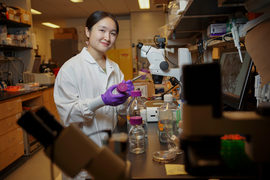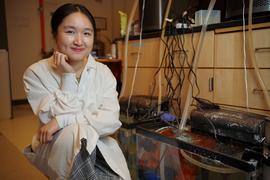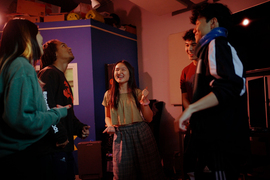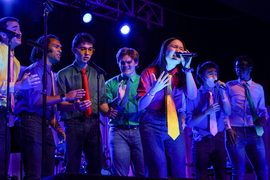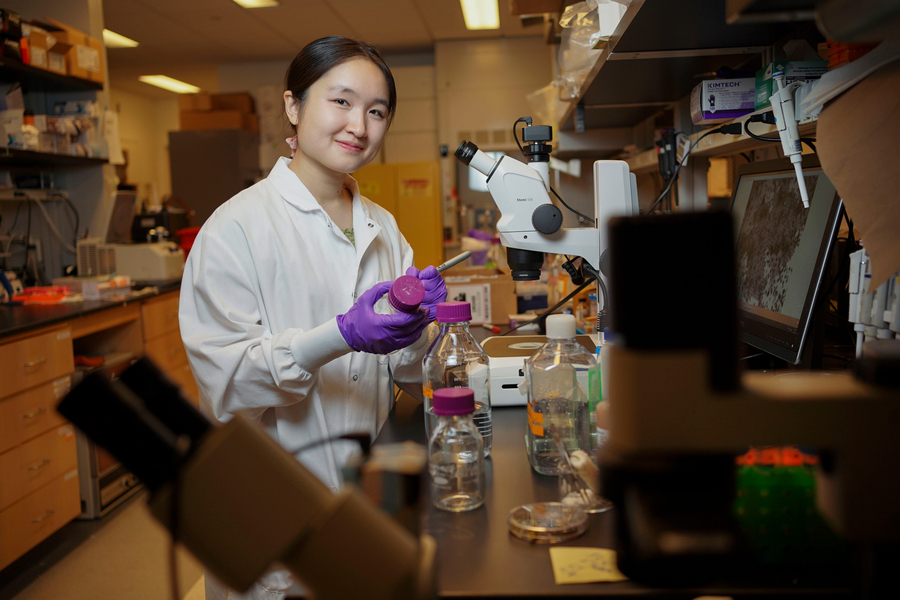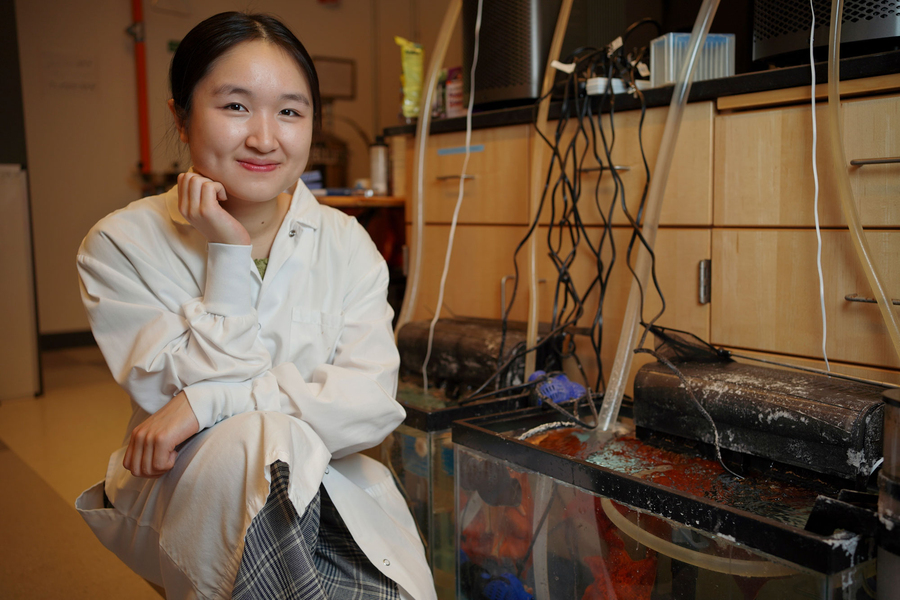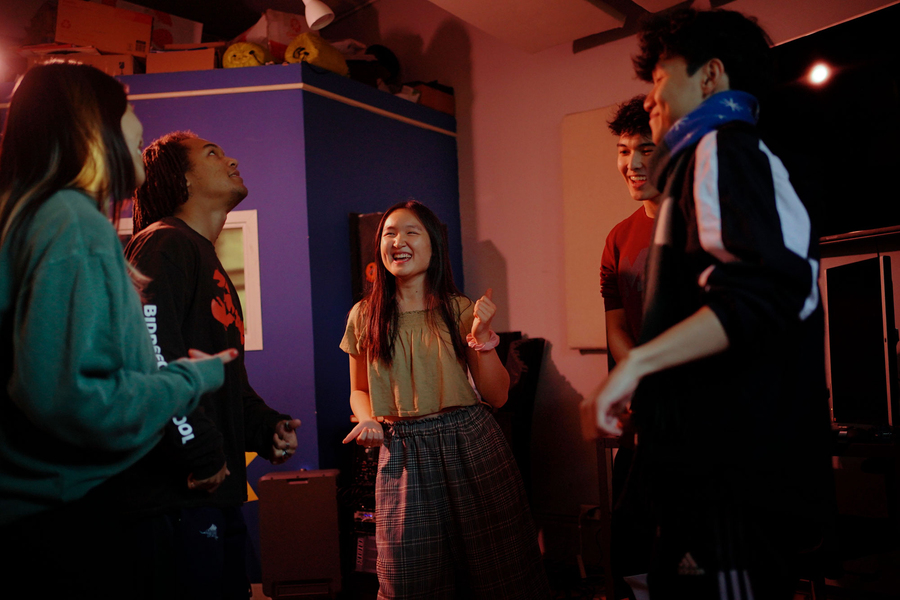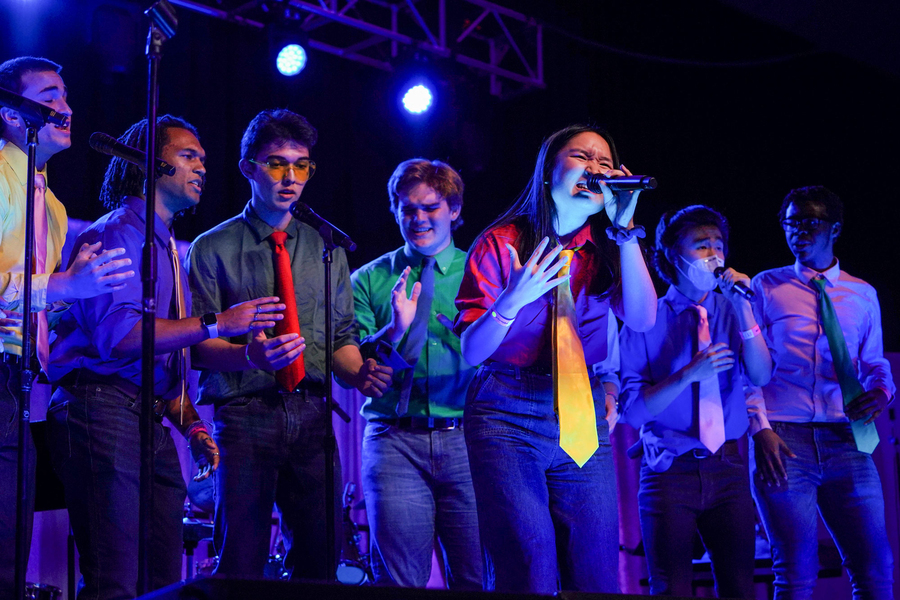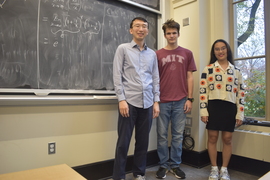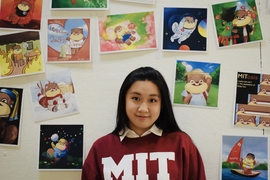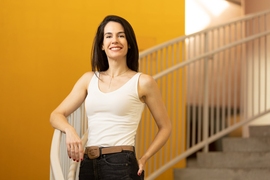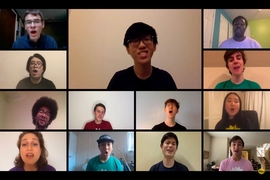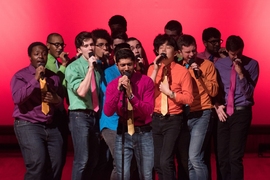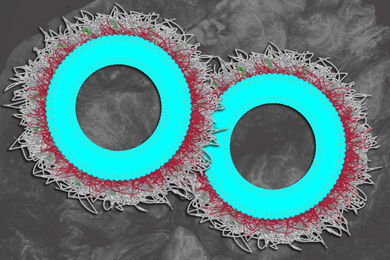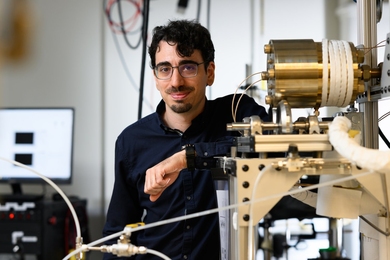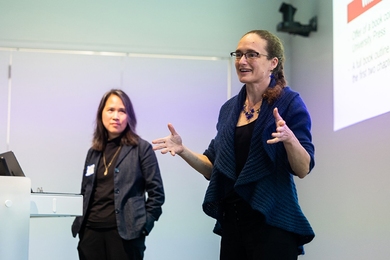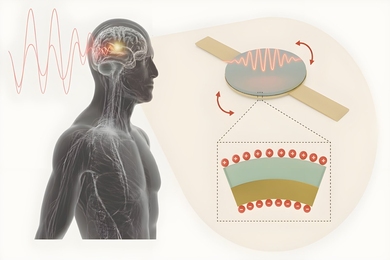Growing up in Idaho, Catherine Ji found herself with a lot of time to write.
“Idaho is a great environment for writing because it’s isolated and there’s a bunch of nature,” says Ji. “I wrote so much poetry — a lot of really messy poetry. I just loved it so much. It really defined my childhood.”
Now a senior majoring in physics and mathematics, Ji finds time to write despite a heavy class load and a variety of other activities. She has taken a number of literature and poetry classes during her undergraduate career, and has been recognized for her work as a winner of the Ilona Karmel Writing Prize in poetry and essay categories.
Beyond writing, Ji has done research in math, physics, and economics, sung in an a cappella group, co-chaired advocacy groups and math mentorship initiatives, and taught as a TA, volunteer mentor, and MIT-Italy GTL instructor.
Still, Ji wishes she could more thoroughly explore MIT’s offerings. “There are just too many cool things to do here, and never enough time,” she says.
Encouraging metamorphosis
In the town where she grew up, which was 40 minutes outside of Idaho’s rapidly growing capital, tensions between the left-leaning city and its more conservative surroundings were often on display. Ji says experiencing that contributed to her ability to adapt in a variety of environments.
“I think Idaho has also taught me a lot of skills that I’m thankful for. Because of the intense politics, you get good at adapting and actively coexisting,” she says. “How do I interact with people who have totally different worldviews? It’s one thing when such discussions on connectivity are theoretical or far-removed and there are structures in place to easily disengage. It’s another when you’re talking about most of your family, neighbors, friends, and teachers.”
The wide range of opinions and beliefs taught her how to advocate for herself and others.
“On some level, I just had to decide, ‘This is what I believe about all these things, and stand by it,’” Ji says.
She carried these skills with her to college. For example, as co-chair of the Council for Math Majors, an advocacy group focused on improving the undergraduate experience in MIT’s math department, she has worked on diversity, equity, and inclusion efforts for the department in collaboration with faculty and staff.
At MIT, “I had to learn a completely new toolbox of language and interacting with others, as well as institutions,” Ji says. “A big question is how to self-advocate in an institution that supports DEI but is super decentralized. It’s ‘mens et manus’ [MIT’s motto of “mind and hand”] in that we have to be the change we want to see; however, higher connectivity on all levels would make life easier.”
These lessons also helped her find her place in the Logarhythms, MIT’s oldest a cappella group that was historically all-male until accepting its first non-male member in 2018. Ji was the second.
“As with any institution that experiences this type of change, it’s a process. At first, I felt very complicated about being in the group, but I’m extremely happy that I stuck with it,” she says.
Ji didn’t only stick with it; in the fall semester, she ran rehearsals and organized concerts as co-director. She also served as president and is now an historian going into her final undergraduate semester.
Pursuing interdisciplinary interests
Whether exploring poetry, scientific research, or challenging historical norms to make student life at MIT more inclusive, Ji is deliberate about doing things her own way.
Navigating MIT with a wide array of interests, Ji jokingly describes her college experience to be “like gradient descent,” referring to the way a machine-learning algorithm tries different paths to a solution and “descends” each time as it gets closer to the correct answer. “I ask myself: What do I enjoy most in the moment? And then I move in that direction,” she says.
Ji’s experiences led her to biophysics, where she has studied the mechanics of polymers with Professor Jörn Dunkel and the dynamics of starfish embryo crystals with Associate Professor Nikta Fakhri. “The same math can model anything from the glug-glug of a draining bottle to solar flares to epidemics,” she explains. “All of these systems in nature are connected through math, which is really cool.”
Considering her roles as a scientist, poet, and community member, she says: “These realms of my life are closely intertwined, and this is the type of life that I want.”
“In a way, we all try to make meaning and joy through connectivity, from mathematicians to writers,” she says. “This is a lesson felt perhaps most strongly during a pandemic. At the risk of being overly theoretical, I see literature, making a cappella music, advocacy, mentorship, and physical applied math research as all contributing to the same purpose of prescribing meaning.”
For her final undergraduate semester, Ji has many things to look forward to. There are exciting classes to take like 18.212 (Algebraic Combinatorics), a potential tour with the Logs in Tokyo, and an upcoming poetry publication in Electric Lit, a digital literary magazine. In between, she’s taking time to breathe and enjoy the people who have made her time at MIT so special.
“I think MIT students strongly believe that putting your all into every area of life, from being a good housemate to a jazz ensemble player to a fire-spinner, naturally leads to better innovators or ‘makers.’ They do their best. And I really admire that.”
Following graduation, Ji plans to pursue a PhD in physics or applied math. In parallel, she wants to find avenues to advise science policy as well as lead advocacy and outreach efforts. And she hopes that her publication in Electric Lit is one of many.
